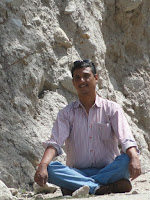Simulation hypothesis and Maya

Simulation hypothesis and Maya Kshitiz Gaur Simulation hypothesis, a theory of illusions and a concept of virtual reality is the major subject discussed mostly after the universe is explored in last many decades. Is the world really and really an illusion? A dream, a virtual as like of the video game, the moment you are playing game, you become a part of that game and involved in it as becoming of part and after the game end, it came out that the game was not reality. Later the simulation theory developed into digital illusion as the internet or the computers that created profile and events, the artificial simulation or a computer simulation. The concept that took the illusion world as real leading to sceptical theory of life as Nick Bostrom suggested the epistemological formation is based on perception and lead to nowhere as like of science fiction. Scientific groups quote Rationalist Rene Descartes that came up that one day we realize that the real world is like a dre



